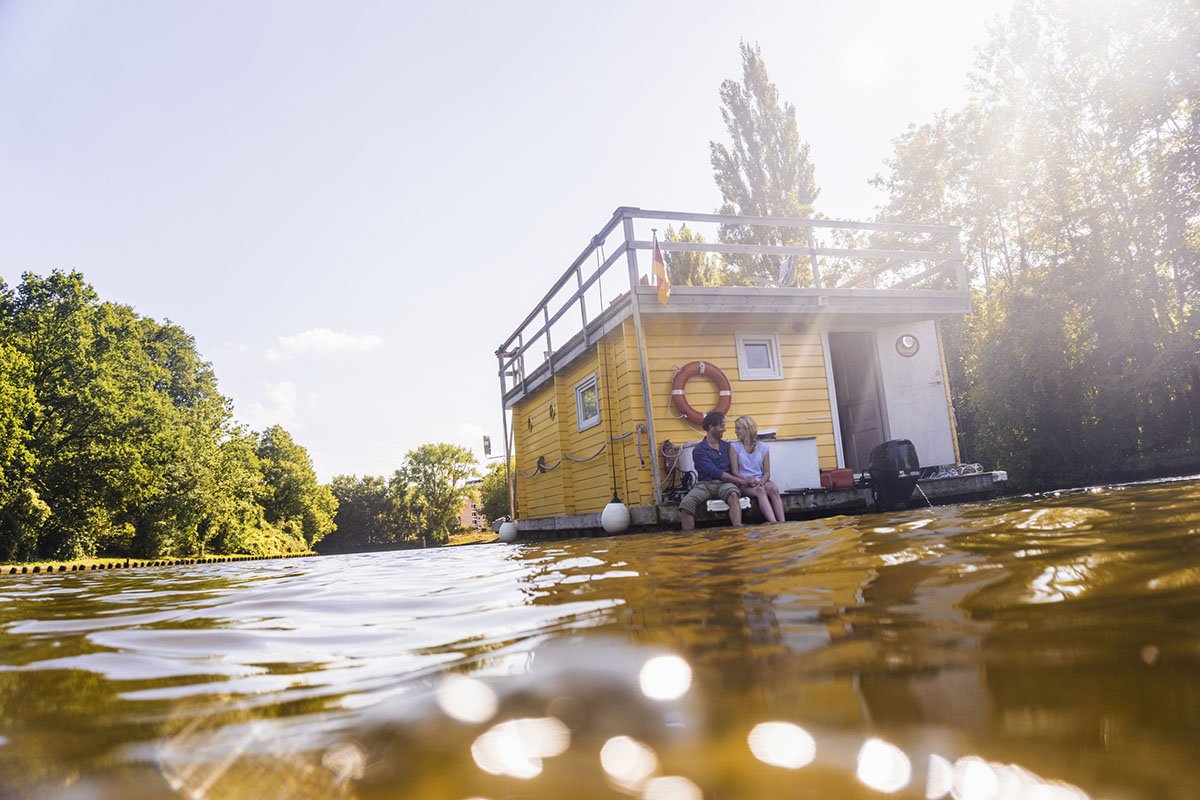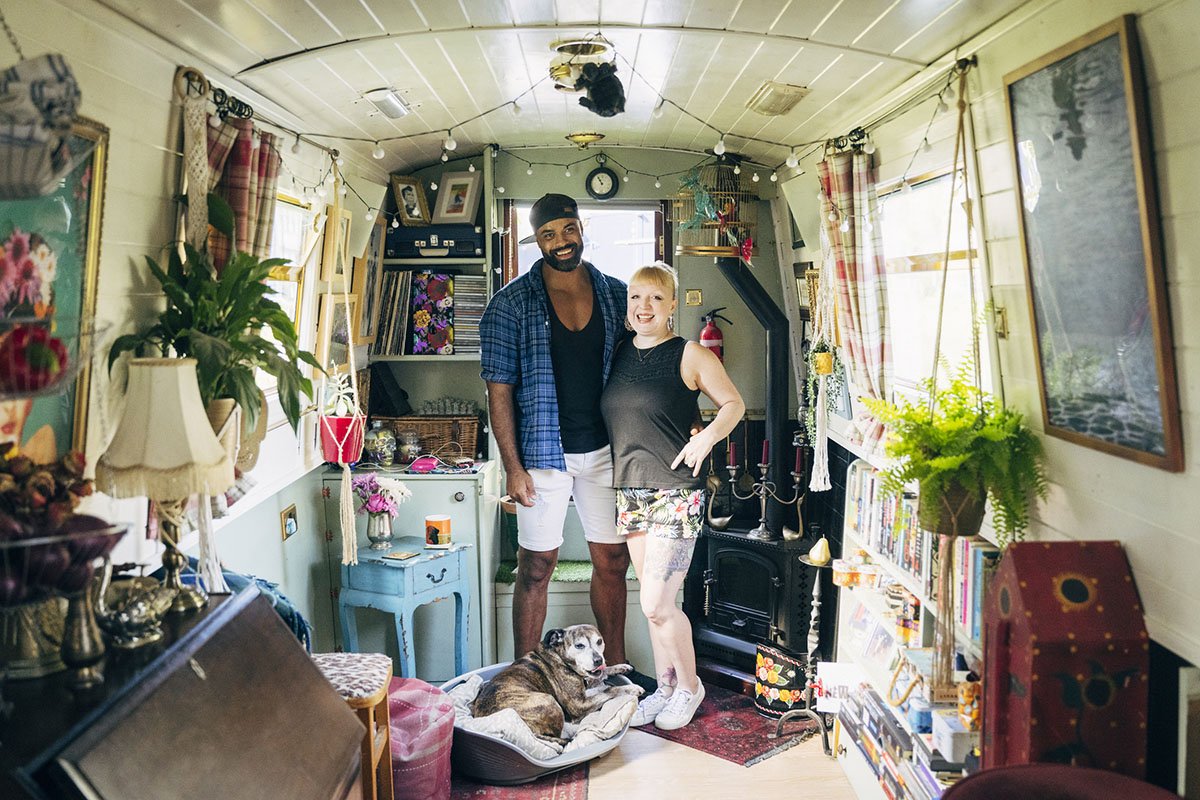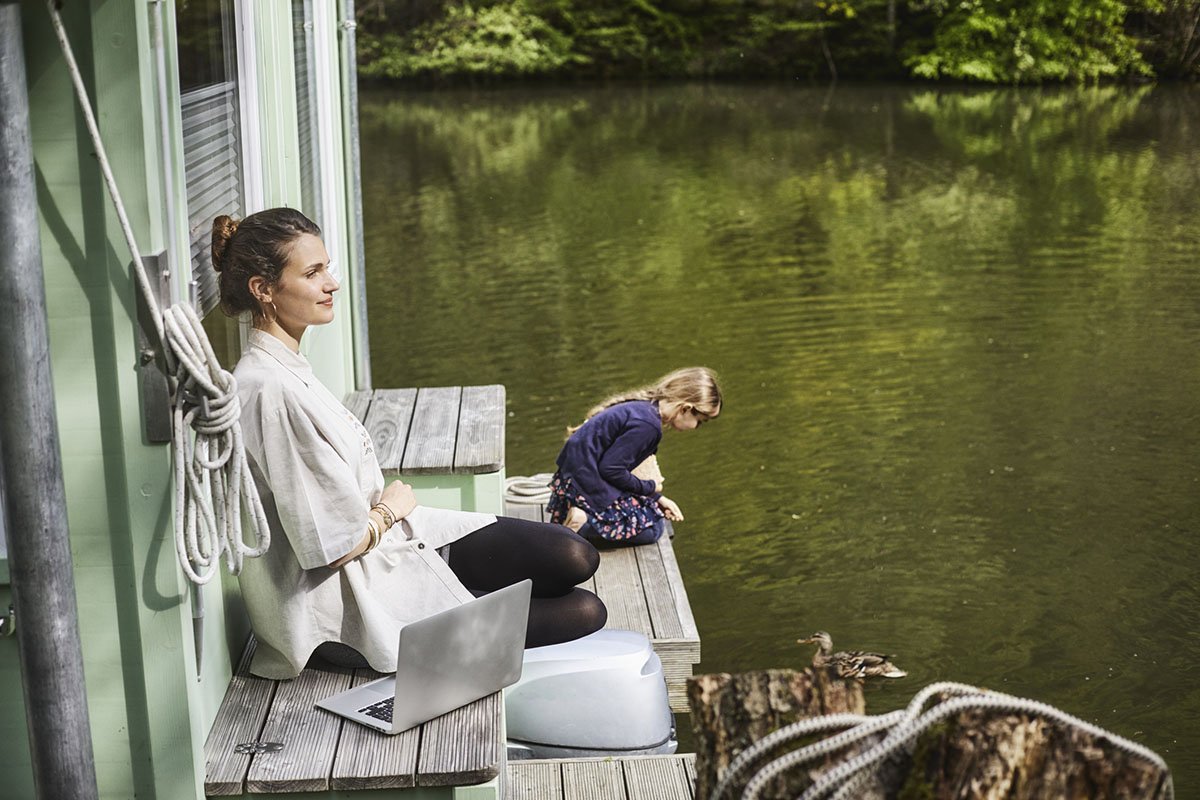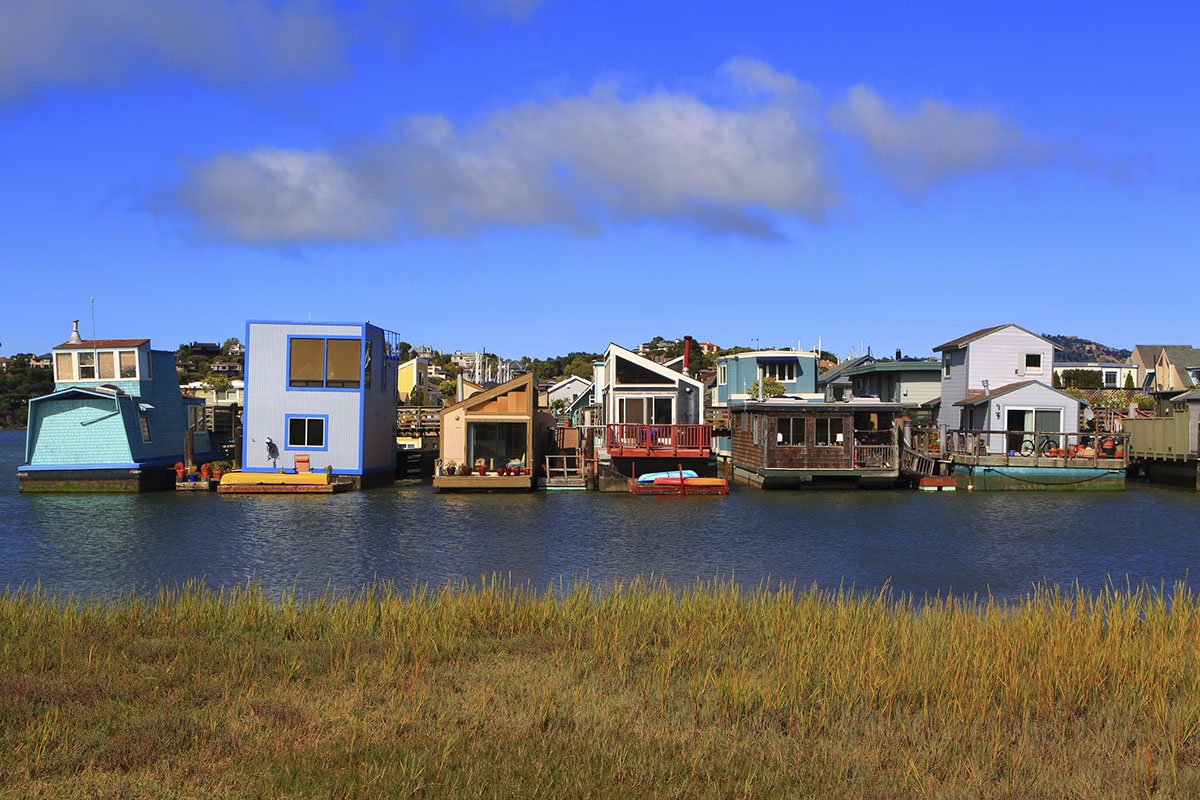Unanchored Dreams: The Freedom and Challenges of Living at Sea
The ocean covers over 70% of the planet, so as humans, it’s only natural that we would want to explore it. But how do you take your everyday life to the high seas? I interviewed two seafaring friends of mine, both of whom have different experiences living on boats, to gain some insight into what it’s like.
George Sloane-Stanley has spent much of his life sailing around the world, exploring everything from the islands of the Caribbean to the wilderness of the rugged Scottish coastline. He has skippered day tours and spent months living at sea on various sailboats. George is now retired and enjoying his land life in southwest Scotland. He shares some of his memories from living at sea and his secrets to making this unique way of life work.
Nathan Hutton has spent the last two years living on a houseboat, docked in London’s Limehouse Marina on the River Thames. The price of rent in London combined with a desire for a unique adventure led Nathan to become curious about an alternative way of life. He spends his summers living on sailboats and is planning to cruise across the English Channel in his 44-foot Nelson boat.
Are you feeling ready to leave your shoreside self behind?
The Freedom of Sailing the High Seas

A life at sea gives you the freedom to go wherever the wind takes you. It’s a chance to get closer to extraordinary parts of the world.
You can reach many secluded and inaccessible points by boat. This makes other outdoor pursuits even more adventurous, as you can explore untouched places that are difficult to reach on foot.
It’s also possible to venture inland through canal systems. The Intracoastal Waterway on the east coast of the United States, stretching from New York to Miami, is a wonder to discover by sailboat. From charming port towns famed for their local cuisine to coastal landscapes and vibrant fall foliage, sailors rave about this route.
“There’s a limitless supply of adventures available,” George says.
Indeed, the number of places you can visit whilst sailing will far exceed what can be achieved on any regular vacation. How many wild and rugged uninhabited islands off the west coast of Scotland can you explore in one trip? You could find out in your sailboat. How many deserted, tropical island paradises can you discover in Greece, the Caribbean, or Indonesia? You can find this out too.
As you sail along, there will be chances to watch stunning sunsets and spot incredible marine life, such as dolphins, whales, and seabirds. Catching some rays on the sun deck with a cocktail in hand is always an option, too. Perhaps you’ll use your freedom to try painting or catching up on lots of reading? Nobody is pushing your calendar, so you can enjoy the freedom and flexibility of staying in a destination for as long as you please.
Living on a boat can bring a sense of impermanence, with nowhere and everywhere being home simultaneously—and not every day is a sunny holiday. It offers a nomadic existence, and, particularly if you’re a solo sailor, it can be a challenging experience. For instance, how do you stay cheerful when it’s rained for a fortnight and you’ve got no dry clothes left? If something does go wrong at sea, you’ll need to keep your wits about you and lean on your own ingenuity.
Here are some tips from our seasoned sailors about how you might make this life work for you.
Getting Started

Choosing the right boat to live on for a long period of time is a decision worth taking some time with. You will need to consider your budget, skill level, and logistics before making the choice. As with any big purchase, it’s important to do your research, and don’t forget extra expenses such as boat registration and maintenance costs. Many sailors find their boats online, but most would still suggest seeing the boat in person and checking it over thoroughly before making a purchase.
During the height of the coronavirus pandemic, my friend Nathan decided to rent out his house in Cambridge and purchase a live-aboard boat with his brother. “You should always get a survey done if you are going to buy a boat,” he advised. “Someone in our marina didn’t, and their boat started to sink to the bottom one day in about 10 minutes flat!”
Are you new to sailing? Another piece of advice from the sailing community is to join a sailing club and take a course to learn the basics. Get started with courses on small dinghy boats, such as Lasers. These boats can teach you the fundamentals of sailing and build your sailing experience in a safe environment.
Choosing Your Anchorage

Even the most nomadic of sailors will need to stop now and then at a marina. It might cost some money, but when you need a break from sailing, it will give you access to important amenities, such as running water, electricity, and internet. There might also be showers, washing machines, and a mailroom, all of which can help with the transition between living on land and at sea.
It is also essential to plan what to do with some of your land responsibilities—your housing situation, cars, taxes, bills, etc. Keeping on top of such matters can be tricky at sea, especially since the normally simple task of keeping your phone charged is not even guaranteed.
No Room for the Sculpture Collection

The space itself (or lack thereof) is another important factor to consider when planning your new life at sea. Are you ready to give up on a few luxuries and squeeze into a small space with your nearest and dearest?
George has lived on sailboats of varying shapes and sizes throughout his life. “Boat designers are masters of maximizing space, but there’s not going to be room for a rack of clothes or your sculpture collection. Anything you take with you has got to fit on the boat,” he says.
Nathan agrees. “Living on a boat means you can’t get some of the things you might want in your life, for example, an exercise bike, a big fridge, or air conditioning,” he says.
Living in close quarters can challenge relationships, so if you’re planning to set sail with a partner or family member, be sure that you are both on the same page about the confinements of the space and set some ground rules to avoid tripping over each other.
The kitchen, living room, and bedroom are likely to be one shared space. As for cooking meals, it’s back to basics while you’re on board. It’s likely you’ll have limited kitchen space, so quick dinners with little washing up will be your best bet while at sea.
Get Good at ‘Making Do’

In terms of logistics, living on a boat can make life beautifully simple. If you are willing to minimize your material possessions and maintain a compact space, of course.
When the place where you sleep floats on water, there will always be maintenance work. Learning how to fix problems as they arise is an important part of boating life. No matter what kind of boat you choose to live on, almost every problem needs urgent attention. Leaving an issue for later can have serious consequences. “If you wake up with water dripping on your face, you know something needs to be fixed ASAP,” says Nathan.
It’s always cheaper to fix things yourself while you’re living on a boat, and it avoids the hassle and expense of hiring an engineer every time something breaks. With some experience and practice, eventually “you will get good at making do and you’ll develop your own way of doing things,” says George.
One more note to remember: your life aboard a sailboat will not include main drainage or plumbing, so you’ll need to figure out how to manage your waste.
Supporting Yourself at Sea

Unless you are chartering a yacht like the guests on Below Deck Sailing Yacht, you will need a way to make money while you’re living at sea.
“Are you of independent means, retired, or a freelancer?” George asks. “Whatever way you make money, you will need it for food, clothing, moorings, medical expenses, chandlery, and boat repairs.”
However, living on a boat can also be a money-saving decision, and the cost of living on a boat can be far cheaper than renting a property, especially in an expensive city.
Nathan’s vessel is docked in a marina, which is one of the most expensive ways to live on a boat, since it includes running water and power. Even so, it only costs one-eighth of the price of monthly rent in that area of London. The cost of buying a boat versus a house in Central London is not even comparable (in favor of the boat).
Sailors’ Top Tips for Living at Sea

I asked the sailors for their top tips for a life at sea. Keep the following in mind as you take to the seas, and happy sailing.
- Make the most of your free time. Discover new hobbies, enjoy your surroundings, and don’t forget to live in the moment.
- Meet people. The fact that you live on a boat is a great ice-breaker at parties. Globe-trotting yachties love to talk for hours, and there is a close-knit sailing community you can tap into for advice about all things boat-related.
- Live like a local and experience new cultures wherever you sail to.
Ginger nut biscuits are a great cure for seasickness.
Source: https://outdoors.com/freedom-and-challenges-living-at-sea/







